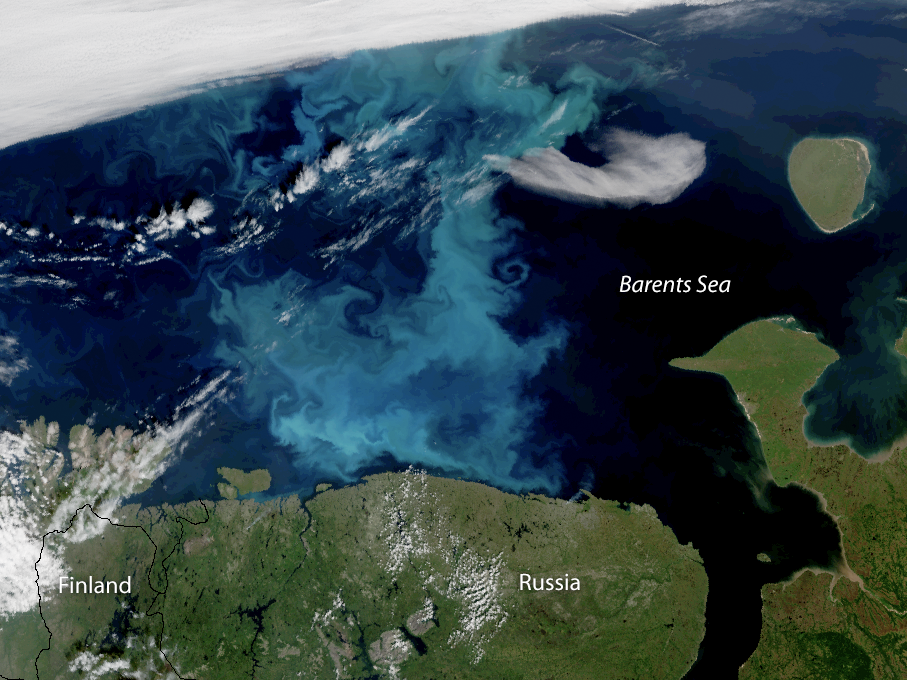Plankton moving into Arctic waters previously covered with ice could have ‘drastic consequences’
‘What happens in the Arctic does not stay in the Arctic’

Declining Arctic sea ice is allowing phytoplankton blooms, made up of billions of microscopic plant organisms, to expand northwards into ice-free waters where they have never been seen before, scientists have discovered.
Research based on satellite images showing ocean colours reveals vast spring blooms of phytoplankton in the Arctic ocean where blooms were previously non-existent, which are expanding northwards at a rate of one degree of latitude per decade.
The study also showed the primary productivity of phytoplankton – the rate at which they turn sunlight into energy – is growing during the spring blooms.
The team found overall primary production of the phytoplankton in the Arctic Ocean, which has previously been low, increased by 31 per cent between 2003 and 2013.
As climate change impacts levels of sea ice, less cover will allow the trend to increase further.
An earlier annual ice retreat and thinner ice pack can provide favourable conditions for the phytoplankton, which the team found now have a productive period 17-days longer than in 1998.
The US National Oceanic and Atmospheric Administration (NOAA), which created a composite image (above) of a July 2018 phytoplankton bloom and made it their “image of the day” earlier this year, said: “The radiant shades of teal and turquoise in this image are likely coccolithophores, a type of phytoplankton that can grow up to 50 metres (164 feet) below the water surface.”
Glacier collapse shows climate impact
Show all 20Larger spring blooms mean phytoplankton will compete for light and nutrients with other species, hugely altering an ecosystem which has never been free of ice cover.
“If the ice pack totally disappears in summer, there will be consequences for the phytoplankton spring bloom,” said Sophie Renaut, a PhD student at Laval University in Quebec City, Canada, and lead author of the study.
“We cannot exactly predict how it will evolve, but we’re pretty sure there are going to be drastic consequences for the entire ecosystem.”
Ms Renaut added: “The polar regions, the Southern Ocean and the Arctic Ocean, they’re really important because they play a critical role in regulating the global climate.
“If sea ice disappears completely in summer in the Arctic Ocean, which is what we expect in some decades, it’s going to have an impact on the ecosystem but also likely on the climate.”
Support free-thinking journalism and subscribe to Independent Minds
Patricia Yager, professor of marine sciences at the University of Georgia, said the earlier algal bloom growth they observed in some areas could have considerable impacts if animals are not yet ready to graze on the phytoplankton.
Professor Yager said: “Such a mismatch in time could cause major changes to the Arctic food web, impacting not only the local animals and the people who live there, but also the global population of migrating animals who depend on these Arctic resources.
“What happens in the Arctic does not stay in the Arctic.”
The study was published in the journal Geophysical Research Letters.
Subscribe to Independent Premium to bookmark this article
Want to bookmark your favourite articles and stories to read or reference later? Start your Independent Premium subscription today.

Join our commenting forum
Join thought-provoking conversations, follow other Independent readers and see their replies